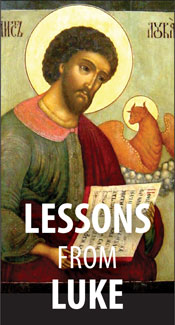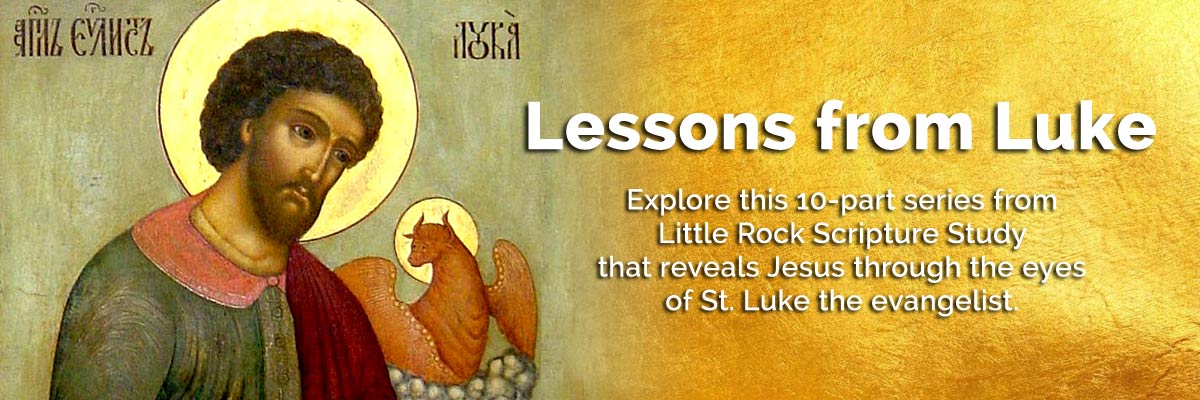Official Website of the
Catholic Diocese of Little Rock
Spirit is God’s continuing gift of presence
Published: November 9, 2019
This is the 10th column in a 10-part series.
By Cackie Upchurch
Retired Director of Little Rock Scripture Study
Almost any reader will agree that it’s hard to see a good story come to an end. We linger over the final pages, sometimes mourning the loss of company that we have experienced with the characters that have come to life. We want a satisfactory conclusion to the story line, and we wonder what next writer or story will draw us in. The Gospels are certainly not the stuff of fiction, and we do not come to them as readers looking for our money’s worth. However, we might still experience some of the same emotional responses as the Gospel narrative delivered by Luke comes to a conclusion. What happens to the community after the resurrection of Jesus? What will become of the crowds who gathered around Jesus in life and have not yet heard of his resurrection? And how will the risen Jesus continue to animate the community?
The Gospels are certainly not the stuff of fiction, and we do not come to them as readers looking for our money’s worth. However, we might still experience some of the same emotional responses as the Gospel narrative delivered by Luke comes to a conclusion. What happens to the community after the resurrection of Jesus? What will become of the crowds who gathered around Jesus in life and have not yet heard of his resurrection? And how will the risen Jesus continue to animate the community?
All four Gospels close with the risen Jesus appearing to the disciples. Mark and Matthew add commissioning scenes where the risen Jesus sends his followers to “make disciples of all nations” through baptism and teaching (Matt 28:16-20), and to “proclaim the gospel to every creature” (Mark 16:15). John includes a scene where Peter is told to feed the flock of Jesus (John 21:15-19), also a kind of commissioning.
Only the evangelist we know as Luke wrote a second volume to accompany his Gospel. Both the Gospel and the Acts of the Apostles begin by referencing Theophilus (Luke 1:3; Acts 1:1). Luke is continuing the story of salvation. His Gospel account ended with a report of the ascension of the risen Jesus; Acts retells this ascension event in more detail (Acts 1:6-12). And the disciples’ commissioning by the risen Christ comes to life throughout the pages of Acts.
On the one hand, we can well imagine that the mere appearance of a dead man returned to life (Luke 20:19-23) would motivate anyone to get to work with his announced plan of action. Who would dare to refuse? But, on the other hand, Jesus’ closest followers are surely already frightened of being arrested, and already confused about the events that had occurred (Acts 24:13-24, 36-40). They need more than a shove out the door of the locked upper room. They need more than simply being in awe of encountering their risen Savior.
The followers of Jesus, holed-up in fear and confusion in ancient Jerusalem, need the very power of God and the very passion of Jesus to move forward. And so, the Spirit is the gift God sends — a gift that will fill the disciples with courage, clarity, and conviction; a gift that will allow Jesus’ followers to embrace their own new identity as the Body of Christ on earth.
The scene when the Spirit arrives is probably familiar to many of us from the Scripture account, and from art throughout the centuries. Acts 2:1-4 paints the picture of a community swept over by a mighty wind and tongues of fire. And we see immediate action as the Spirit fills them with the courage to go out into Jerusalem, a city that just hours ago was hostile to them and their leader. The Spirit enables Peter to speak with conviction and clarity about the things he has witnessed.
Courage, clarity, and conviction mark the events that unfold in the Acts of the Apostles. Stephen (Acts 6:8—7:60), usually seen as the church’s first martyr, demonstrates such Spirit-given qualities. Peter, Paul, Barnabas, Lydia, and Timothy also possess these gifts that they share freely. The Spirit guides the emerging church into unfamiliar territories, geographically and culturally. The events described in Acts show the followers of Jesus moving across Asia Minor into the very heart of the Roman Empire, preaching the Gospel in both Jewish and Gentile communities, meeting both resistance and profound conversion.
In large and small ways, the Body of Christ comes to life and grows throughout the Mediterranean region through acts of courage in the face of threats, preaching with clarity the Good News of life through death, and living with the conviction that Jesus, the risen Christ, is the true power of the world. In these same ways, the body of Christ is still alive “to the ends of the earth” (Acts 2:8). We draw upon the same Spirit of God.
Study Questions
- Picture yourself in the upper room after the brutal death of Jesus, and then the news of an empty tomb. What emotions might you feel? What hopes might you have? And how might you respond when the risen Jesus appears in your midst?
- Have you ever read Luke and Acts in sequence? If so, what themes were you able to identify? If you have not done this, set aside some time this week to read them as a two-part story.
- The work of the Spirit is manifest in individuals and communities in a number of ways. Where have you seen courage, clarity, or conviction brought to life in your community of faith? How do these qualities manifest themselves in the lives of believers you know?
- The Spirit of God is the bringer of many good gifts (1 Cor 12:4-11; Rom 12:4-8) that produce rich fruit (Gal 5:22). In the challenges of our world today, what spiritual gifts seem to be most needed? What can we do to open ourselves to the Spirit’s guidance at this time?
This article was originally published in Arkansas Catholic Nov. 9, 2019. Copyright Diocese of Little Rock. All rights reserved. This article may be copied or redistributed with acknowledgement and permission of the publisher.




